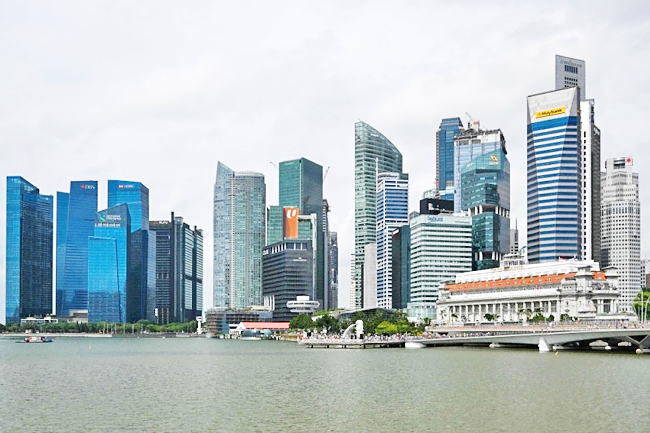AFP – Singapore yesterday cut its economic growth forecast for this year owing to weak demand from key export markets including China and the United States (US).
The Southeast Asian nation’s performance is often seen as a barometer of the global environment because of its reliance on international trade.
Data showing forecast-beating second-quarter growth helped the city-state escape a recession, but analysts have warned that it faced headwinds in the back-end of the year.
The Ministry of Trade and Industry (MTI) yesterday said it had narrowed its economic growth forecast this year to 0.5-1.5 per cent from a previous estimate of 0.5-2.5 per cent.
“Overall, MTI’s assessment is that Singapore’s external demand outlook for the rest of the year remains weak,” the ministry said in a statement.

“The global electronics downturn is also likely to be protracted, with a gradual recovery expected towards the end of the year at the earliest.”
Despite the reopening of China – the world’s second-biggest economy – and other positive global trends, downside risks to the world economy remained, the ministry said. It cited persistently high inflation that could crimp global spending and potential supply disruptions caused by escalations in the war in Ukraine and geopolitical tensions among major global powers.
“Among its major export markets, the US economy is projected to slow more significantly in the remaining quarters of the year as elevated interest rates and a cooling labour market weigh on personal consumption growth,” the ministry said.
Economic growth in the eurozone and China are also forecast to be sluggish for the rest of the year, it added.
As a small and open economy, Singapore is usually among the first to experience the impact of external developments before the effects ripple to the rest of the world.
Official data released yesterday showed its economy expanded 0.1 per cent on-quarter in the three months to June, slightly softer than the 0.3 per cent growth reported in advance estimates last month.
But the figures defied projections for a contraction and helped Singapore avoid a recession after the economy shrunk 0.4 per cent on-quarter in January-March.




